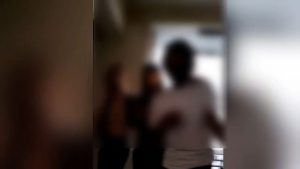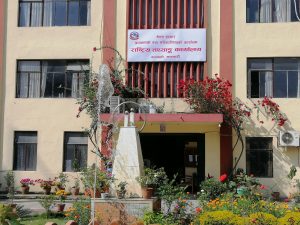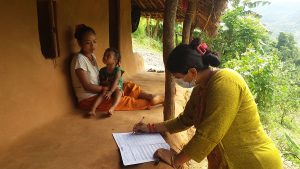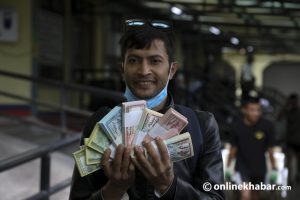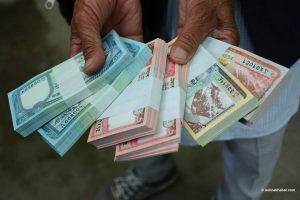We have witnessed the Great Pause. The year 2020 shall be marked in the history of humanity as a year in which uncertainty loomed large and most human activities were forcefully paused by the contagion of SARS-CoV-2, commonly known as the novel coronavirus, leading to the ‘coronavirus disease 2019’ (Covid-19).
For the last nine months, governments across the world have forced to use their legal tools to restrict people from movements. People are impatient now with their daily lives badly affected, their means of living greatly compromised, and their futures looking increasingly uncertain.
While restricting people in their homes could have helped break the chain of the virus spread, this has badly affected people with pre-existing health conditions, the children and the elderly.
The breadwinners of the families are worried about how to keep their loved ones surviving. Further, the elderly are worried about how to protect themselves from catching the virus, and the children are confused and struggling to understand what is happening around their environment.
As much as the parents have missed their workplaces, the children have been missing their daily routine at school and the fun they used to have with their friends. The concerns of children are likely to linger longer and affect their wellbeing not only in the present but also in the future.
Current confusions in children increase their vulnerability to emotional shocks. The duration of exposure to the disaster situation, the nature and availability of support systems and the traumatic experience of personal, family and social losses render them psychologically stressed. The collective stress in the children, the families and the communities makes the situation worse. Some children, unable to cope with the situation are rendered helpless.

The current pandemic and the resultant Great Pause have put children and adolescents under stress, and this is increasing every day as the pandemic continues. Naturally, children like to explore the world they are growing into. But, the measures adopted to control the spread of the infection have put them with the four walls in their homes. They have limited places and things to explore about within their homes. This builds up stress among them and they struggle to understand what is going around them.
The parents are already stressed themselves for losing their way of lives and worried over the future of the family; they resort to oppressive measures to control their children. This creates an unhealthy atmosphere in the family and hurts the children’s feelings, thus impacting their healthy, holistic mental and physical development.
Children’s regular routines are disrupted. Their learning environment has been limited. They miss their schools and their environs; they miss their friends and their companionship; they are also worried about the pace of their learning cycles and the impacts it might have on their future.
Remaining isolated from the social network has affected children’s ability to cope with stress or any situation. Unable to share their feelings, they have started to become more reclusive. In the long run, this will certainly affect the growth of the mind and body of children and adolescents.
Being within the homes for a prolonged period also means children have limited opportunities to be physically active. They do not get space to run, play or move around as often as they used to do. This has started having negative impacts on the physical growth of our children and adolescents.
The Great Pause has already had impacts on social, cultural, economic lives of the parents. This has rendered them clueless about how they can help their children.

Seeking a solution, Nepali parents now need to revert to the Gurukul education system, a home-based system practised for centuries before the institutional education system emerged. With whatever limited resources we have at our disposal, we should try to guide our children and adolescents to learn basic life skills. We should try to let our stresses go and stop passing down the stress to our children. We should engage with them, communicate with them, befriend them and learn from them as well. We can use the time we have to read for them, help them make stories and broaden their imaginations. Learning to play musical instruments or listening to music could be another way to relieve stress among children and ourselves. We should be mindful to use all digital resources available at our disposal to learn new things.
In the meantime, it is certain that the traditional teaching-learning methodologies will fall short to help children and adolescents grow out of this situation. It is of great importance for educational policymakers and institutions to readjust the curricula to adapt to the changed circumstances and include resources to enable children to be recreational and introduce a pedagogy oriented towards psychotherapy.
For sure, the built-up stress among the children and adolescents will mean teachers facing unexpected attitudes, emotional reactions and changed psychosocial behaviours by their students. The students might have diminished learning abilities and developed reclusive behaviours. This might startle teachers and educators, but they should understand that this is the outcome of the month-long isolation they have been subjected to.
Schools should strive for ethically responsible pedagogy and impart training to their teachers to enable them to do so. Likewise, the government should play a constructive role. It should use all its resources to well equip teachers to help children adapt to the new normal and revisit their learning abilities.
Also, the government should fully understand the inequality in society and provide for the less-resourced schools, teachers and students resources to enable them to regain their confidence so as to teach and learn better. The failure to acknowledge this inequality and failure to provide for this section of the population might be detrimental in the development of a just, socialism-based country.
Without a well-educated society where all sections are provided for equitable learning opportunities, the vision for a “Prosperous Nepal, Happy Nepali” may just be a hollow slogan.





